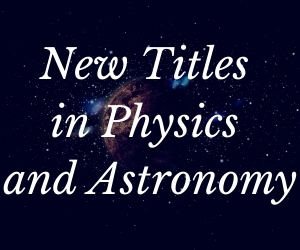System Upgrade on Tue, May 28th, 2024 at 2am (EDT)
Existing users will be able to log into the site and access content. However, E-commerce and registration of new users may not be available for up to 12 hours.For online purchase, please visit us again. Contact us at customercare@wspc.com for any enquiries.
Named a Top Five Book of 2012 by Physics Today, USA.
“Anderson has put together an entertaining and instructive collection of highly readable reviews, columns, talks, and unpublished essays on science and the scientists he has known. He is rarely inappropriately provocative, and he is a pleasure to read.”
Philip Anderson was educated at University High School in Urbana, Illinois, at Harvard (BS 1943, PhD 1949), and further educated at Bell Laboratories, where his career (1949-1984) coincided with the greatest period of that remarkable institution. Starting in 1967, he shared his time with Cambridge University (until 1975) and then with Princeton, where he continued full time as Joseph Henry Professor until 1997. As an emeritus he remains active in research, and at press time he was involved in several scientific controversies about high profile subjects, in which his point of view, though unpopular at the moment, is likely to prevail eventually. His colleagues have made him one of the two physicists most often cited in the scientific literature, for several decades.
His work is characterized by mathematical simplicity combined with conceptual depth, and by profound respect for experimental findings. He has explored areas outside his main discipline, the quantum theory of condensed matter (for which he won the 1977 Nobel Prize), on several occasions: his paper on what is now called the “Anderson-Higgs mechanism” was a main source for Peter Higgs' elucidation of the boson; a crucial insight led to work on the dynamics of neutron stars (pulsars); and his concept of the spin glass led far afield, to developments in practical computer algorithms and neural nets, and eventually to his involvement in the early years of the Santa Fe Institute and his co-leadership with Kenneth Arrow of two influential workshops on economics at that institution. His writing career started with a much-quoted article in Science titled “More is Different” in 1971; he was an occasional columnist for Physics Today in the 1980s and 1990s. He was more recently a reviewer of science and science-related books for the Times (London) Higher Education Supplement as well as an occasional contributor to Science, Nature, and other journals.
Sample Chapter(s)
Chapter 1: Personal Reminiscences (3,554 KB)
Contents:
- Personal Reminiscences:
- Introduction
- “BCS” and Me
- A Mile of Dirty Lead Wire: A Fable for the Scientifically Literate
- Scientific and Personal Reminiscences of Ryogo Kubo
- History:
- Introduction
- Physics at Bell Labs, 1949–1984: Young Turks and Younger Turks
- It's Not Over Till the Fat Lady Sings
- Reflections on Twentieth Century Physics: Historical Overview of the 20th Century in Physics
- 21st Century Physics
- Y Nambu and Broken Symmetry
- Nevill Mott, John Slater, and the “Magnetic State”: Winning the Prize and Losing the PR Battle
- Philosophy and Sociology:
- Introduction
- Emergence vs Reductionism
- Is the Theory of Everything the Theory of Anything?
- Is Measurement Itself an Emergent Property?
- Good News and Bad News
- The Future Lies Ahead
- Could Modern America Have Invented Wave Mechanics?
- Loose Ends and Gordian Knots of the String Cult
- Imaginary Friend, Who Art in Heaven
- Science Tactics and Strategy:
- Introduction
- Solid State Experimentalists: Theory Should be on Tap, Not on Top
- Shadows of Doubt
- The Reverend Thomas Bayes, Needles in Haystacks, and the Fifth Force
- Emerging Physics
- On the Nature of Physical Laws
- On the “Unreasonable Efficacy of Mathematics” — A Proposition by Wigner
- When Scientists Go Astray
- Further Investigations
- Genius:
- Introduction
- What Mad Pursuit
- Complexities of Feynman
- Coffee-Table Complexities
- Search for Polymath's Elementary Particles
- Giant Who Started the Silicon Age
- The Quiet Man of Physics
- A Theoretical Physicist
- Some Thoughtful Words (Not Mine) on Research Strategy for Theorists
- Science Wars:
- Introduction
- They Think It's All Over
- Science: A 'Dappled World' or a 'Seamless Web'?
- Reply to Cartwright
- Postmodernism, Politics and Religion
- Politics and Science:
- Introduction
- Politics and Science
- The Case Against Star Wars
- A Dialogue About Star Wars
- No Facts, Just the Right Answers
- Futurology:
- Introduction
- Futurology
- Dizzy with Future Schlock
- Einstein and the p-Branes
- Forecaster Fails to Detect Any Clouds
- Complexity:
- Introduction
- Physics: The Opening to Complexity
- Is Complexity Physics? Is It Science? What Is It?
- Complexity II: The Santa Fe Institute
- Whole Truths False In Part
- Popularization Attempts:
- Introduction
- Who Or What Is RVB?
- More on RVB
- Brainwashed by Feynman?
- Just Exactly What Do You Do, Dr Anderson?
- What Is a Condensed Matter Theorist?
- Global Economy II: Or, How Do You Follow a Great Act?
Readership: Students, scientists and lay people.
























